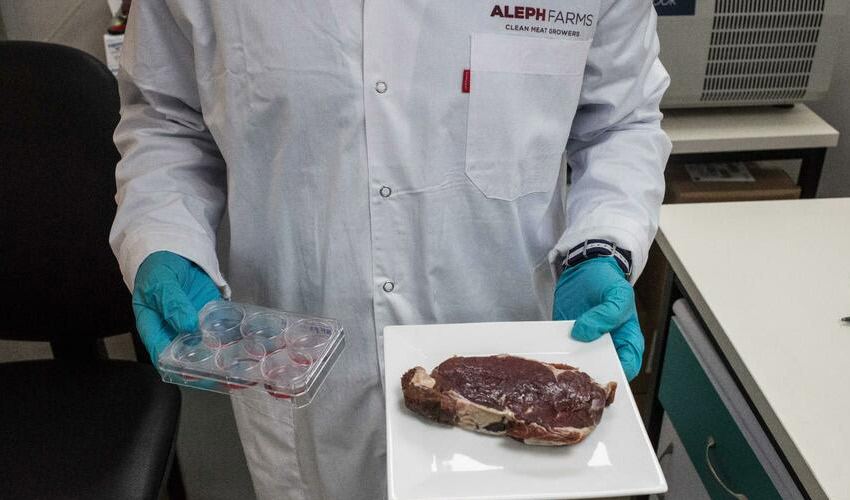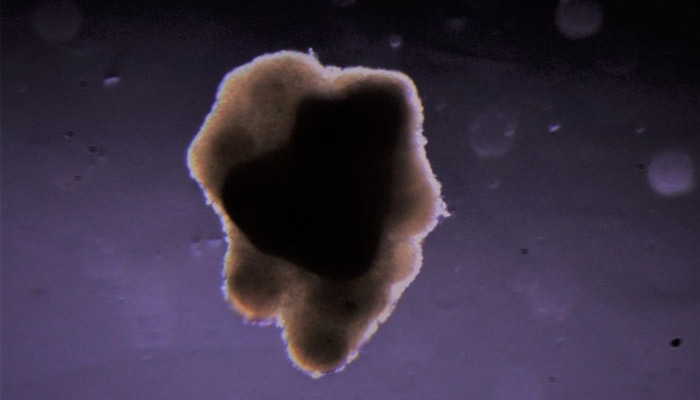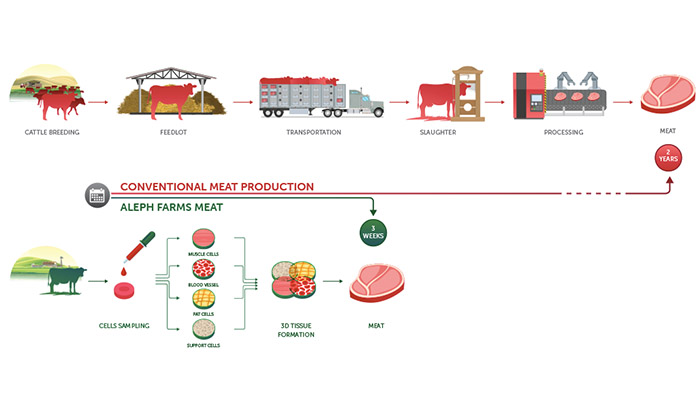Aleph Farms can produce slaughter-free meat in Space

Aleph Farms is an Israeli startup that has developed a method to produce cultivated beef steaks. This method mimics the natural process of muscle-regeneration occurring inside the cow’s body, but under controlled conditions. One week ago, the startup successfully 3D printed meat on the International Space Station, far away from any natural resources. Its mission is to provide access to safe and nutritious meat anytime and anywhere on earth, while using minimal resources.
Behind this project also stands 3D Bioprinting Solutions, a laboratory of biotechnological research founded by INVITRO (the largest private medical company in Russia), Meal Source Technologies and Finless Foods, both based in the USA. Aleph Farms successfully assembled a small-scale muscle tissue in a 3D bioprinter developed by 3D Bioprinting Solutions, on board of the ISS under micro-gravity conditions.

A droplet of bioink containing the bovine cells | Credits: 3D Bioprinting Solutions
“In space, we don’t have 10,000 or 15,000 Liter (3962.58 Gallon) of water available to produce one Kg (2.205 Pound) of beef. This joint experiment marks a significant first step toward achieving our vision to ensure food security for generations to come, while preserving our natural resources,” explained Didier Toubia, Co-Founder and CEO of Aleph Farms.
Ensuring food security for the generations to come is of key importance, given that the population is predicted to reach 10 billion individuals by 2050. On top of this, it is no secret that livestock farming contributes significantly to global warming through releases of methane, a greenhouse gas 20 to 30 times more potent than carbon dioxide. It contributes more to greenhouse gas emissions than the global transportation sector and almost 30% of the planet’s ice-free surface is used for this purpose.
It is the top contributor to deforestation, land degradation, water pollution and desertification. In a historic report, with contributions from 107 authors, the Intergovernmental Panel on Climate Change established by the United Nations emphasized the integral contribution of the conventional animal farming methods on climate change.
“The mission of providing access to high-quality nutrition anytime, anywhere in a sustainable way is an increasing challenge for all humans,” added Jonathan Berger, CEO of The Kitchen. “On Earth or up above, we count on innovators like Aleph Farms to take the initiative to provide solutions to some of the world’s most pressing problems, such as the climate crisis.”
Unlike 3D printed plant-based meat, this production method uses bovine cells to replicate the taste, texture and look of meat. It all starts with a sample of several cells from fat cells, muscle fibres, blood vessel cells, etc. They are then mixed to form a bioink which will be used in the bioprinting process. Thus, preserving, the texture, flavor and structure of a classic steak.

The production process of Aleph Farms | Image via Aleph Farms
You can find more information HERE.
What do you think of Aleph Farms’ mission? Let us know in a comment below or on our Facebook and Twitter page! Don’t forget to sign up for our free weekly Newsletter, with all the latest news in 3D printing delivered straight to your inbox!






